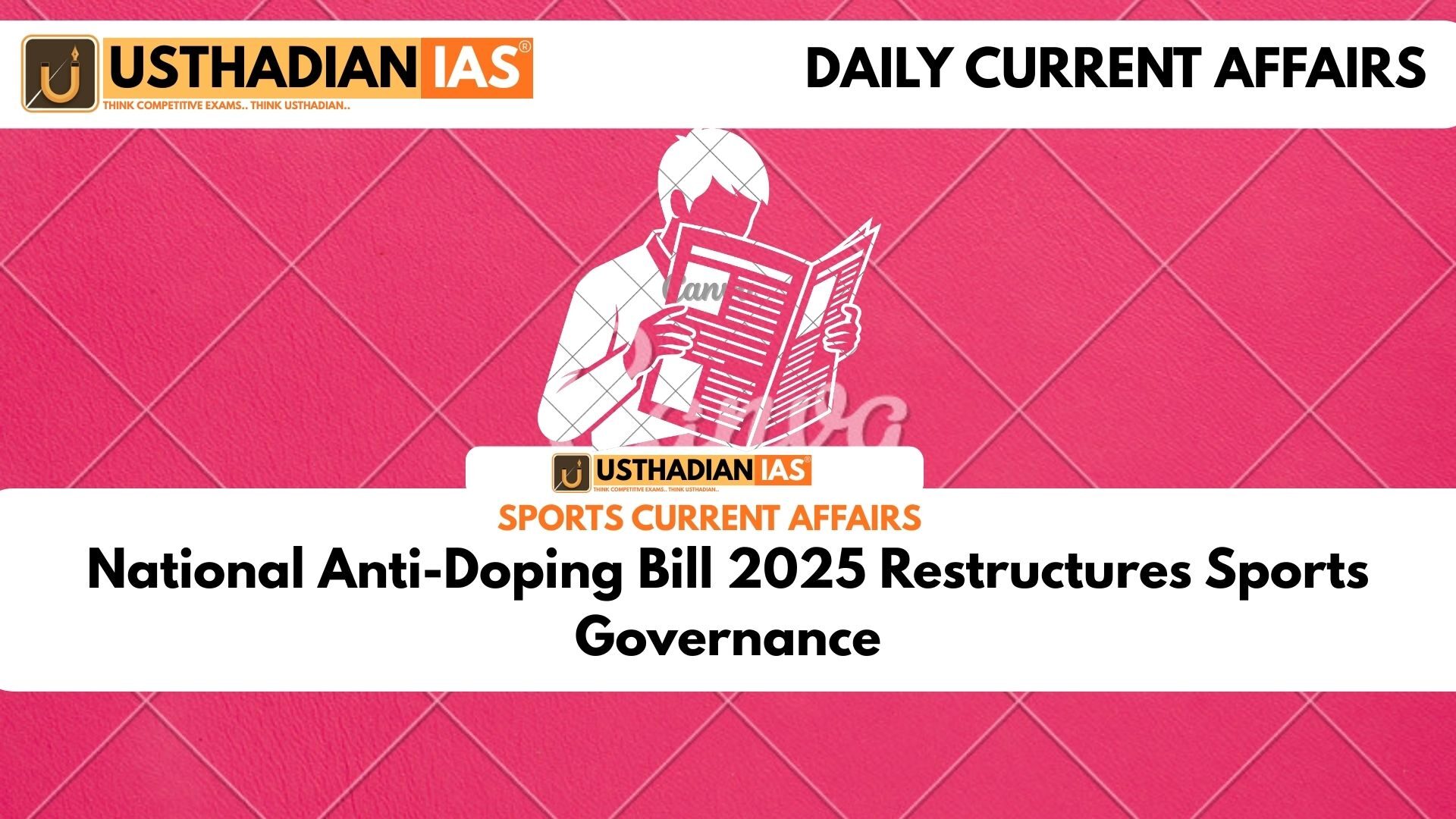Key objectives of the amendment
National Anti-Doping Bill 2025 Restructures Sports Governance: The National Anti-Doping (Amendment) Bill 2025 was introduced by Sports Minister Mansukh Mandaviya in Parliament. The main goal of this amendment is to align Indian anti-doping regulations with international norms laid down by the World Anti-Doping Agency (WADA).
This amendment revises the original National Anti-Doping Act of 2022, which faced pushback from WADA over concerns about government interference in doping oversight.
WADA’s objections to the 2022 law
In 2022, India had passed its first standalone law to tackle doping in sports. The law created a National Board for Anti-Doping in Sports, with powers to advise the government and issue directions to NADA (National Anti-Doping Agency).
However, WADA raised concerns, stating that having the Board appointed and controlled by the central government compromised the autonomy of NADA, a body expected to function independently.
Static GK fact: WADA is an international agency formed in 1999 with the mission to promote clean sport through the World Anti-Doping Code, followed by over 190 countries.
Major changes in the 2025 amendment
In response, the 2025 amendment bill retains the National Board for Anti-Doping in Sports, but strips it of key powers. It will no longer oversee NADA or offer recommendations to the government on doping policy.
This restructuring ensures that NADA’s autonomy remains intact, thereby fulfilling WADA’s compliance criteria and allowing India to avoid possible sanctions or suspensions from global sporting events.
Importance for athletes and India’s international standing
This reform helps India meet global anti-doping standards, ensuring that its athletes can continue to participate in international events like the Olympics, Asian Games, and World Championships without bureaucratic setbacks.
Static GK Tip: India ranked 3rd globally in anti-doping rule violations in the 2022 WADA report, behind Russia and Italy, making such reforms essential for global credibility.
Looking ahead
With this amendment, India hopes to be fully WADA-compliant, strengthening its image as a responsible sporting nation. It also sends a clear signal about the government’s intent to eliminate doping while respecting institutional autonomy.
Static Usthadian Current Affairs Table
National Anti-Doping Bill 2025 Restructures Sports Governance:
| Topic | Detail |
| Original Act Passed | 2022 |
| Introduced By | Sports Minister Mansukh Mandaviya |
| Amended In | 2025 |
| WADA Objection | Government interference via oversight board |
| Key Body Involved | National Anti-Doping Agency (NADA) |
| New Provision | Board retained without powers to oversee or advise |
| WADA Formation Year | 1999 |
| Indian Doping Rank (2022) | 3rd globally |
| Sanction Risk | India risked suspension from international sports |
| Purpose of Amendment | To align with WADA norms and retain athlete eligibility |








